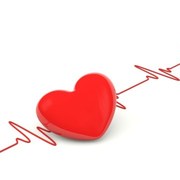Your heart is racing, it seems to be skipping beats, you're short of breath, you feel pain in your chest and are light headed or dizzy. Chances are, you have ventricular tachycardia.
Typically ventricular tachycardia can follow a heart attack but other maladies can contribute to ventricular tachycardia. These include: cardiomyopathy (weakening of the heart muscle), heart failure, myocarditis (inflammation of the heart muscle) and valvular heart disease (the valve that separates the upper and lower chambers of the left side of the heart does not close properly).
Anti-arrhythmic medications, changes in blood chemistry, lack of oxygen and changes in your pH can also contribute to ventricular tachycardia.
Diagnosis may include: continuous ambulatory electrocardiogram, an electrocardiogram (ECG), intracardiac electrophysiology study (EPS) and blood chemistry tests.
Treatments vary according to the symptoms and the type of heart condition. A new technology having success is an implantable cardioverter defibrillator (ICD).




Add a CommentComments
There are no comments yet. Be the first one and get the conversation started!